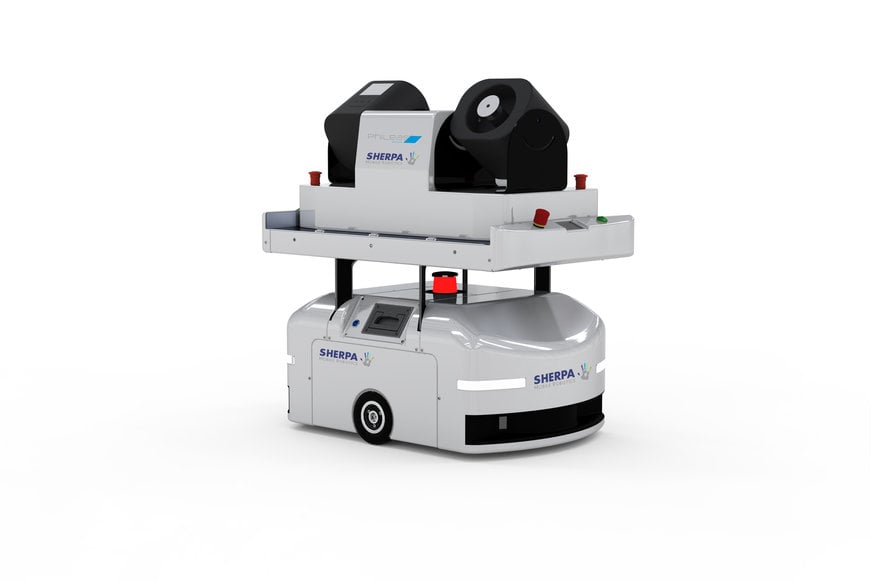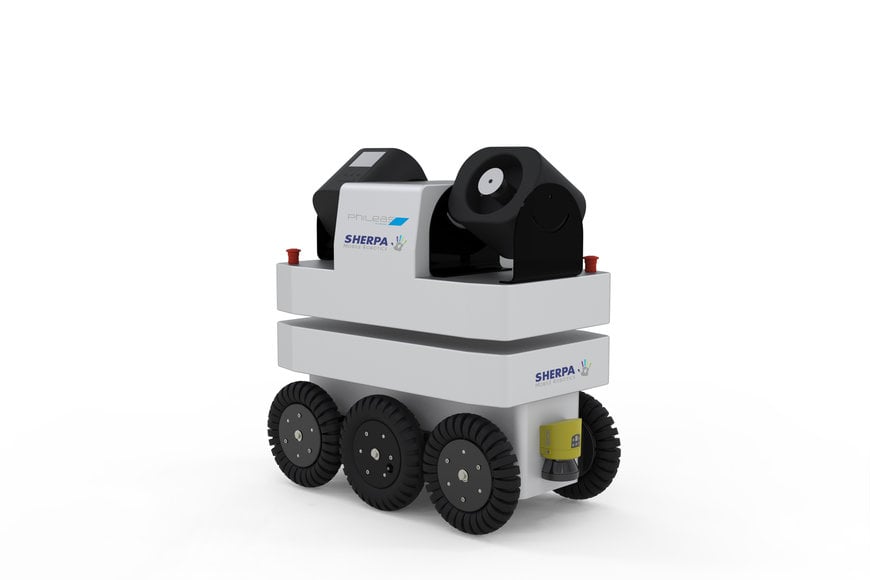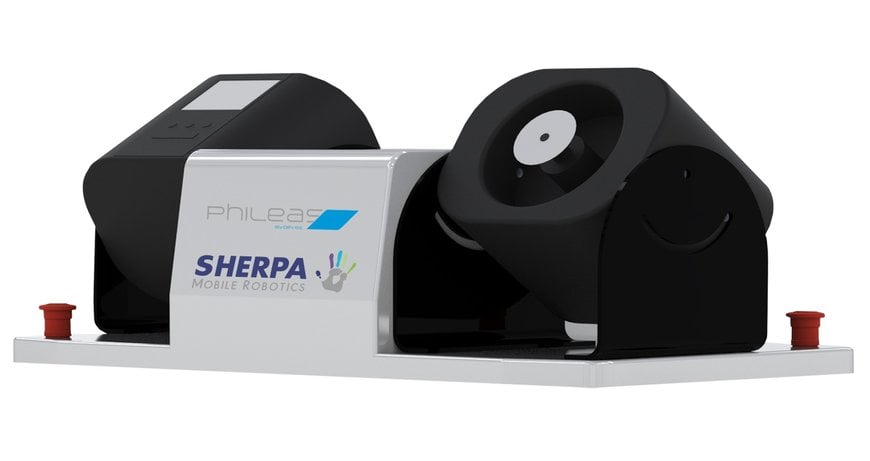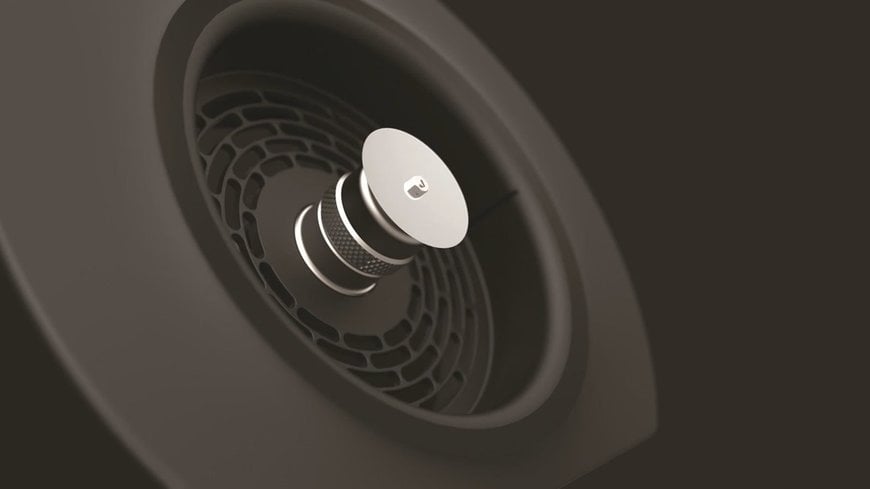electronics-journal.com
20
'20
Written on Modified on
Sherpa Mobile Robotics equips its mobile robots with an airborne surface disinfection (ASD) device
In the context of the Covid-19 epidemic, many companies with large facilities are looking for an effective disinfection solution to protect and reassure their employees. Most devices available for disinfection by fumigation are static and are used to treat each typical surface in turn, requiring the intervention of an operator who must be protected. They also involve wet spraying, which could potentially cause damage, thus limiting their area of application. In order to provide a solution for these problems, Sherpa Mobile Robotics (SMR), a company within the innovation branch of NORCAN, has partnered with Devea to develop a mobile, autonomous disinfection system in the form of a Sherpa robot, equipped with an innovative but proven spraying device which generates a dry mist. The ASD is compliant with the NFT 72-281 version 2014 standard, and the virucide, based on hydrogen peroxide, has an MA (marketing authorisation), guaranteeing its 99.99% effectiveness against viruses. It is currently the only device of this type certified on the market.

Sherpa Mobile Robotics designs, develops and markets mobile robots known as AMRs (Autonomous Mobile Robots), i.e. with a non-dedicated path unlike AGVs (Automated Guided Vehicles). They are therefore programmable and adaptable to their environment and its specific features. They are intended for industries, mainly logistics and production, transferring parts, handling assistance, feeding production lines, as well as picking and sorting for e-Commerce.
Other areas such as distribution, medical, airports and transport are also being studied.
In the context of the Covid-19 pandemic, the SMR development teams had the idea to transform their handling assistant robots into a mobile disinfection solution. To perform their task, the Sherpas travel as close as possible to the areas to be disinfected, working either autonomously at a controlled speed, or controlled remotely. This mobility makes it possible to treat large surfaces or a series of surfaces separated by partitions. Their autonomy and agility do not need to be controlled by an operator and allow them to operate in any type of environment (halls, offices, workshops, changing rooms). The disinfectant system from Devea, a recognized expert in airborne disinfection, is widely used in pharmaceutical and food-processing companies and has proven to be perfectly complementary.

Making work environments safe: no residue, no toxicity and total disinfection
DEVEA's system, known under the Phileas brand name, uses centrifugation technology to spray micro-droplets of disinfectant, perfectly calibrated from 5 to 10 µm. "We didn't want nozzles that would clog at the slightest bit of dirt," explains Stéphane FAUTH, CEO of Norcan and SMR. The dry mist generated in this way can reach all types of surface, even ones that might seem inaccessible, such as inside furniture drawers, to obtain optimal disinfection. The system is highly effective, simple and safe. At the end of the process, after only a few hours (diffusion, contact time and ventilation), employees can safely return to their workstations. As the virucide is dry, it leaves no residue and eliminates any risk of corrosion or degradation of surfaces and equipment.
The only virucide process on the market to be certified
The virucidal process used is the only one to be certified NF T 72-281, this standard being the reference for validating the effectiveness of device / product combinations for manufacturers of this type of device. The product used, based on hydrogen peroxide, has also already obtained its marketing authorization, guaranteeing the effectiveness of the Phileas system on viruses at 99.99%.
The Sherpa disinfectant has already been implemented at an SMR customer: "We and the customer are both very pleased with the strength and quality of this partnership with Devea, who in a sense are providing the scientific backing for this unique offering", says Stéphane FAUTH. "Tests are still being carried out on site and under real application conditions to define the final settings based on measurements of the process efficiency."
Norcan, with SMR in its innovation branch, is thus confirming its agility and adaptability in trying to get back up after two months that have been difficult for all companies. These qualities are essential to survival in a world that is increasingly unstable and uncertain.



